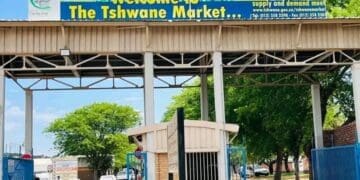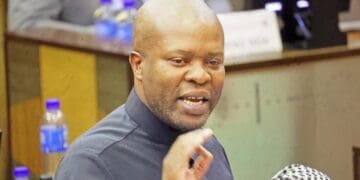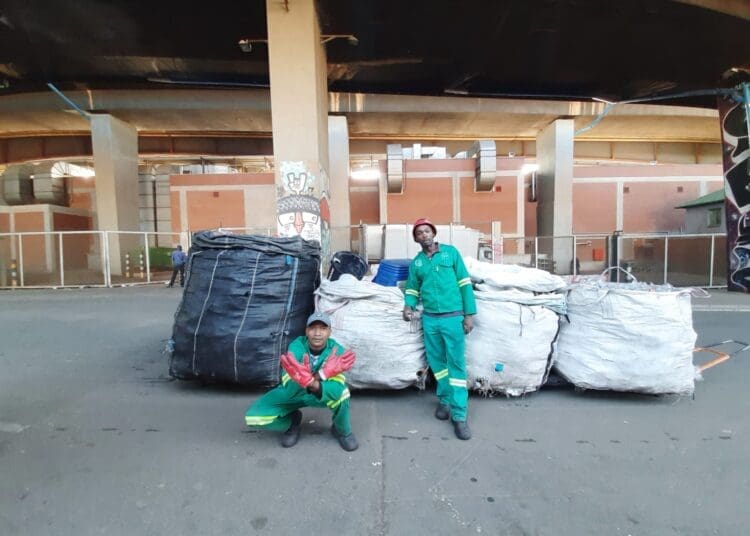In the bustling streets of Johannesburg, where most see waste, Luyanda Hlatshwayo saw an opportunity.
As a waste reclaimer and one of the many informal waste pickers who keep cities clean, Hlatshwayo’s business, African Reclaimers Organisation (ARO), champions the rights of over 9000 reclaimers, working to integrate them into the formal economy as SMEs.
Hlatshwayo, 41, said the biggest challenge that SMEs and informal recyclers faced in the sector was a lack of education and knowledge of the industry.
“In the recycling space, we know that the data says there is 80% of recycled materials, but we do not know where it comes from and how. This leads to SMMEs not being recognised and do not get funding,” said Hlatshwayo.
He further said that in European countries recycling education was big.
“In South Africa, it is informal and stigmatised to abonyaope and that makes it hard for SMEs to grow. That is why we are negotiating with the Department of Labour to register a new industry. We have more than 20,000 people who are earning a living through recycling and they are not known,” said Hlatshwayo.
Another issue was that municipal by-laws did not allow them to store waste or recycle material in open spaces.
“You can only take waste at a dedicated space recommended by the Department of Environment and Fisheries. That is why we have our own warehouse in Selby with four trucks, collection, debaling, sorting and flaking. Some of the guys that used to push trolleys on the streets are now drivers and machine operators at our warehouse,” he said.
Hlatshwayo said ARO was working with the University of Johannesburg and Wits University on drafting a waste management plan. It had so far been tested through a pilot project with Unilever, Coca Cola and residents.
He stressed the need to create an inclusive circular economy that included producers, consumers, retailers, collectors and recyclers.
“This will help the government, environment and unemployment in Africa,” said Hlatshwayo.































































